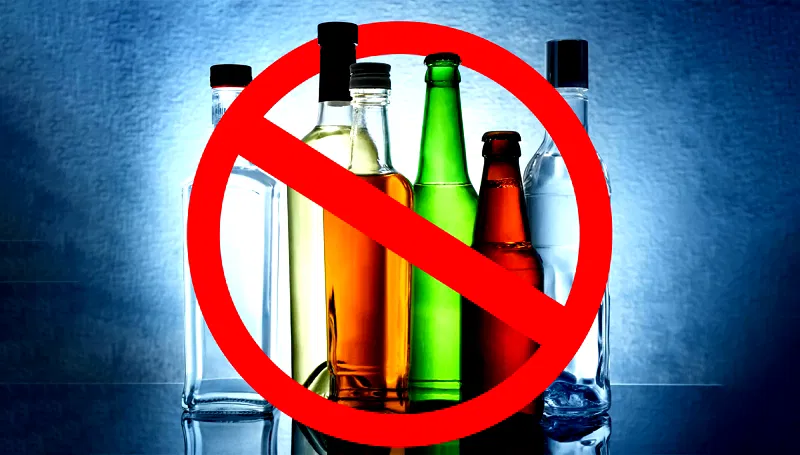Alcohol dependency can be a silent struggle, often hidden behind excuses and denial. Recognizing the signs early can help you take the necessary steps to support your loved ones in their journey toward recovery. This blog will guide you through the key indicators of alcohol dependency and how you can approach the situation with care and empathy.
Understanding Alcohol Dependency
Alcohol dependency is a medical condition characterized by an inability to control drinking despite the negative consequences it brings to one’s life. Unlike casual or social drinking, alcohol dependency often leads to severe health problems, relationship issues, and a decline in overall well-being. Recognizing the difference between casual drinking and alcohol addiction is crucial in providing the right kind of support.
Physical Signs of Alcohol Dependency
One of the most evident ways to spot alcohol addiction is through physical changes in a person. These symptoms can be both subtle and overt, depending on the severity of the dependency.
- Frequent Smell of Alcohol: A consistent smell of alcohol on a person’s breath, even during inappropriate times, can be a sign of heavy drinking.
- Unexplained Weight Loss or Gain: Alcohol consumption can lead to significant changes in appetite, causing sudden weight fluctuations.
- Neglected Appearance: A person who was once meticulous about their grooming may start neglecting their appearance, wearing dirty clothes, or not taking care of basic hygiene.
- Bloodshot Eyes and Flushed Skin: Chronic alcohol consumption can lead to bloodshot eyes and flushed skin, especially around the face.
- Hand Tremors: A common sign of alcohol withdrawal is tremors or shaking hands, which typically occur in the morning after waking up.
Behavioral Signs of Alcohol Dependency
Behavioral changes are often the most telling signs of alcohol dependency. These changes can affect various aspects of a person’s life, from their work performance to their social interactions.
- Increased Secrecy: Someone struggling with alcohol addiction may become secretive about their activities, often hiding bottles of alcohol or lying about their whereabouts.
- Isolation from Friends and Family: Withdrawal from social circles is common as individuals become more consumed by their addiction.
- Neglecting Responsibilities: Alcohol dependency can lead to neglecting work, school, or household responsibilities. This often results in job loss, academic failure, or financial problems.
- Mood Swings and Irritability: Frequent mood changes, irritability, and aggressive behavior can be linked to alcohol withdrawal or the effects of heavy drinking.
- Loss of Interest in Hobbies: Activities that once brought joy may no longer hold any interest for someone with alcohol dependency.
Psychological Signs of Alcohol Dependency
The psychological impact of alcohol addiction can be just as damaging as the physical effects. Understanding these signs can help in recognizing the severity of the problem.
- Denial of the Problem: One of the most common signs is the denial of alcohol dependency. The person may refuse to acknowledge the problem, even when confronted with evidence.
- Depression and Anxiety: Alcohol dependency often coexists with mental health issues like depression and anxiety. The person may drink to self-medicate these feelings, leading to a vicious cycle.
- Increased Tolerance: Over time, individuals with alcohol addiction may require larger amounts of alcohol to achieve the same effects, indicating an increased tolerance.
- Memory Blackouts: Frequent episodes of forgetting events while drinking, or “blackouts,” are a clear sign of alcohol dependency.
- Lack of Control: The inability to limit the amount of alcohol consumed, despite the desire to stop, is a hallmark of alcohol addiction.
How to Approach a Loved One with Alcohol Dependency
Once you’ve identified the signs of alcohol dependency in your loved one, the next step is to approach the situation delicately. Confronting someone about their addiction can be challenging, but it’s essential to do so with compassion and understanding.
- Choose the Right Time: Find a time when the person is sober and in a calm state of mind. Avoid confrontations when they are under the influence, as this can lead to defensiveness or aggression.
- Express Your Concerns with Empathy: Use “I” statements to express how their drinking is affecting you and others. For example, “I’ve noticed you’ve been drinking more lately, and I’m worried about your health.”
- Avoid Blame and Judgment: It’s important to avoid blaming or judging the person for their addiction. Instead, focus on offering support and understanding.
- Encourage Professional Help: Suggest seeking help from an alcohol rehab center or a Malibu rehabilitation center. Professional guidance from an alcohol detox center can provide the necessary tools and support for recovery.
- Be Prepared for Resistance: It’s common for individuals with alcohol addiction to resist help or deny the problem. Patience and persistence are key in encouraging them to seek treatment.
The Importance of Seeking Help from an Alcohol Rehab Center
Recognizing the signs of alcohol dependency is just the first step. The next crucial step is seeking help from a professional alcohol rehab center. These centers offer comprehensive treatment programs that address both the physical and psychological aspects of alcohol addiction.
A Luxury rehab center provides a serene and supportive environment, away from the triggers and stresses of daily life. Here, individuals can undergo a supervised alcohol detox process, receive therapy, and learn coping strategies to maintain sobriety.
Alcohol detox centers play a vital role in the recovery process, offering medical supervision to manage withdrawal symptoms safely. Detox is often the first step in a long-term recovery plan, followed by counseling, support groups, and aftercare services.
Conclusion
Spotting the signs of alcohol dependency in your loved ones requires vigilance, understanding, and compassion. If you recognize these signs, it’s essential to approach the situation with care and encourage professional help from an alcohol rehab center. With the right support, recovery is possible, and your loved one can reclaim their life from the grips of alcohol addiction.
Stay in touch to get more news & updates on Essential Tribune!








